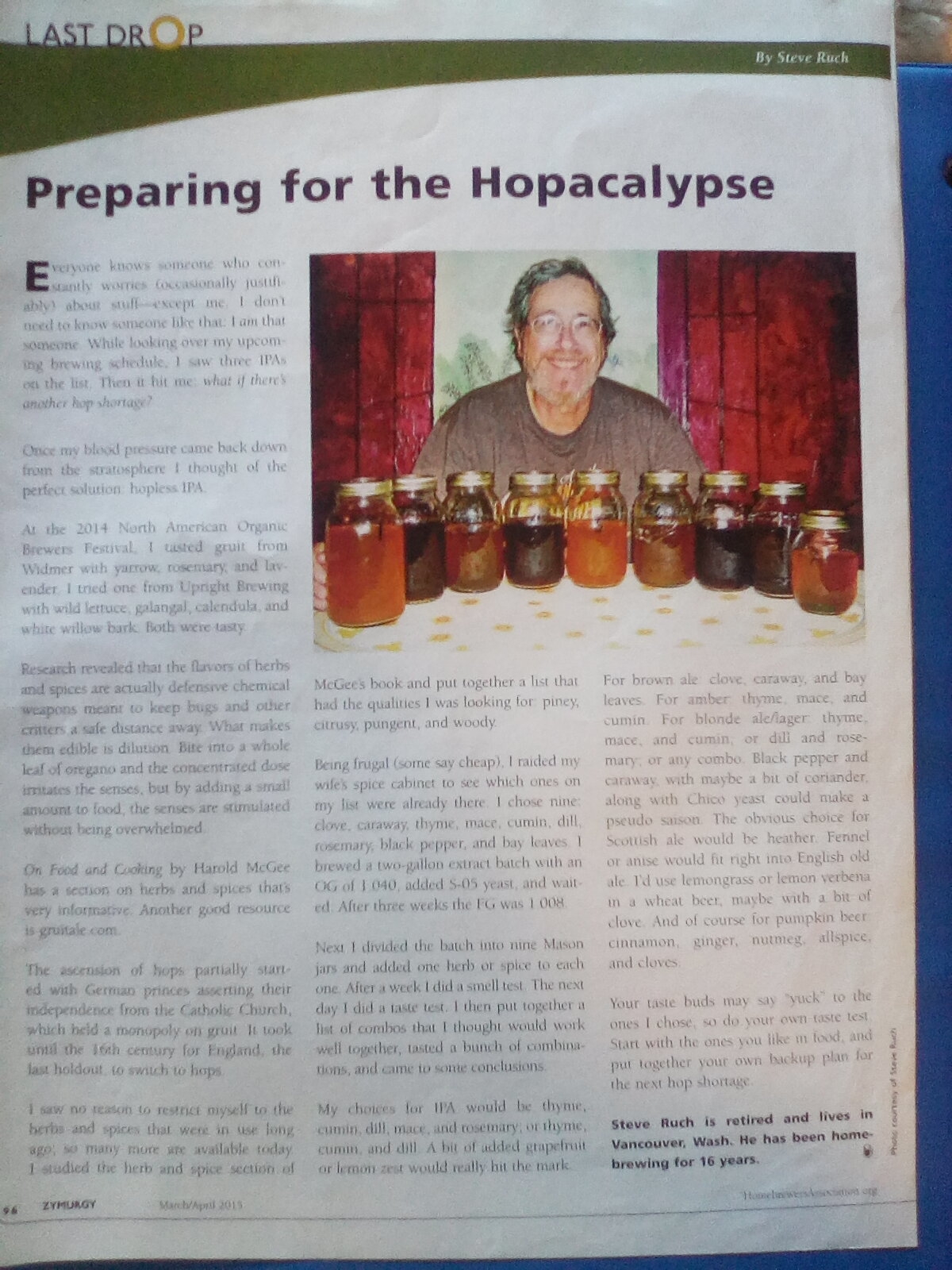frankvw
Well-Known Member
I'm about to plunge myself headlong into the dark, mysterious world of brewing some ancient gruit ales. It's been nice knowing y'all. 
Of course jumping in and finding out is a good way to learn, and I will definitely do that, but while I'm still looking at ingredients and recipes, I'd like to make some sort of educated guess as to the bitterness of the concoctions I'm about to unleash unto my unsuspecting palate (once fermentation is complete, of course). However, I'm hampered by the fact that while hops have an alpha acid rating, no such data appears to be available for gruit components.
Specifically, I'm looking at bittering my ales with Yarrow, Mugwort, St. John's Wort and Heather. (Yes, I'm aware that St. John's Wort, and other classic gruit components, may carry health risks when ingested/imbibed in large amounts and/or in combination with certain other compounds and/or medication.) These are all described as "fairly bitter herbs" but how bitter is bitter? Also, how much bitterness is extracted during the boil as a function of boil time and other factors?
Regular brewing software has no provision for any gruit components, so we're off the map and here there be dragons, but is there ANY data at all (either from the vast homebrewing experience collected here or elsewhere) to suggest how much of these herbs to use in comparison to, say, a regular bittering hop of a given AA percentage?
I will of course experiment, but if I had a good starting point the would be very helpful.
Any suggestions appreciated!
Of course jumping in and finding out is a good way to learn, and I will definitely do that, but while I'm still looking at ingredients and recipes, I'd like to make some sort of educated guess as to the bitterness of the concoctions I'm about to unleash unto my unsuspecting palate (once fermentation is complete, of course). However, I'm hampered by the fact that while hops have an alpha acid rating, no such data appears to be available for gruit components.
Specifically, I'm looking at bittering my ales with Yarrow, Mugwort, St. John's Wort and Heather. (Yes, I'm aware that St. John's Wort, and other classic gruit components, may carry health risks when ingested/imbibed in large amounts and/or in combination with certain other compounds and/or medication.) These are all described as "fairly bitter herbs" but how bitter is bitter? Also, how much bitterness is extracted during the boil as a function of boil time and other factors?
Regular brewing software has no provision for any gruit components, so we're off the map and here there be dragons, but is there ANY data at all (either from the vast homebrewing experience collected here or elsewhere) to suggest how much of these herbs to use in comparison to, say, a regular bittering hop of a given AA percentage?
I will of course experiment, but if I had a good starting point the would be very helpful.
Any suggestions appreciated!











![Craft A Brew - Safale BE-256 Yeast - Fermentis - Belgian Ale Dry Yeast - For Belgian & Strong Ales - Ingredients for Home Brewing - Beer Making Supplies - [3 Pack]](https://m.media-amazon.com/images/I/51bcKEwQmWL._SL500_.jpg)




































